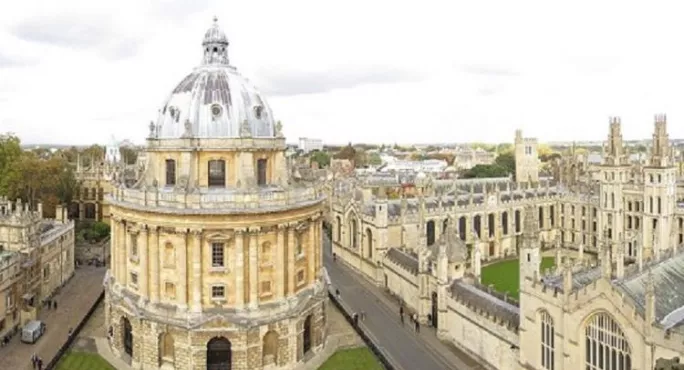- Home
- Just 8 ‘top schools’ win more Oxbridge places than 2,900 others
Just 8 ‘top schools’ win more Oxbridge places than 2,900 others

Eight "top schools" sent more pupils to Oxbridge over three years than another 2,894 schools in England put together, a report published today reveals.
The report Access to Advantage from the social mobility charity the Sutton Trust, analyses Ucas data university on acceptance rates by school type and region to show how access to university varies across England.
It found that eight schools with the highest number of Oxford and Cambridge university acceptances sent a total 1,310 pupils to these universities across the three years from 2015-17, while at the same time just 1,220 pupils gained places from the 2,894 schools with two or fewer acceptances.
The report finds that pupils from independent schools are more than twice as likely to attend a Russell Group university than their peers at comprehensives – and seven times more likely to get into Oxbridge.
While just 7 per cent of the general population attended a private school, and independent school pupils make up 18 per cent of those taking A-levels, a third (34 per cent) of applications to Oxbridge came from pupils at independent schools – and they won 42 per cent of places.
Pupils from comprehensive schools make up 32 per cent of applications to Oxbridge, but just 25 per cent of those who gain a place.
The Sutton Trust is now calling on elite universities to make more use of contextual data when making offers and make it clear that they are doing this to potential applicants – saying that otherwise potential beneficiaries might not apply.
Call for change in university admissions
It also says that all pupils should receive a guaranteed level of careers advice, and careers advice should happen earlier.
“If we are to ensure that all young people, regardless of their background, have a fair chance of getting into our top universities, we need to address the patchwork of higher education guidance and support,” Sir Peter Lampl, founder of the Sutton Trust, said.
“All young people, regardless of what area they grow up in, or what school they go to, should have access to high-quality personal guidance that allows them to make the best informed choices about their future.
“The admissions process also needs to change. We have made the case for giving poorer students a break through contextual admissions, but we also need universities to make it clear what grades these students need to access courses.”
The report finds that students accepted from all school types to Oxbridge had similar results on average, equivalent to A*A*A at A-level.
The analysis also found big regional differences in the proportion of teenagers going to Oxbridge.
Several parts of the country had two or fewer acceptances to Oxbridge from comprehensive schools in the three years the research looked at, including Halton, Knowsley, Lincolnshire, North Lincolnshire, Portsmouth, Rochdale, Rutland, Salford, Southampton and Thurrock.
To address the regional disparity in university admissions, the Sutton Trust is recommending that university access agreements should focus on marginalised geographical areas that are underrepresented.
The report comes after Ucas data earlier this week revealed that progress has slowed in closing the gap between the most and least advantaged students starting degrees at top universities.
The University of Oxford's pro-vice-chancellor for education, Professor Martin Williams, said: "We are very much aware that Oxford must work harder to attract a more representative selection of students from across the UK.
"We are targeting areas we have not often recruited from in the past, working with teachers to encourage students to believe Oxford really can be for them.
"The university’s latest strategic plan makes a priority of admitting students with outstanding potential from all backgrounds. We will bring forward a detailed action plan to achieve this and will be considering a range of further changes to ensure any student with the talent and commitment to succeed at Oxford can do exactly that."
A spokesman for the University of Cambridge said it was "constantly striving to increase the number of less advantaged students admitted" but that "lowering grade requirements would place unfair pressure on students".
"We invest significant effort and expenditure each year in outreach activities across all regions of the UK to raise aspirations amongst under-represented and disadvantaged groups, and this work is now having a clear impact on the profile of our admissions," he said.
He added that the university already used "contextual information to assess applications individually and holistically" and recorded the geographical and socioeconomic backgrounds of applicants.
Keep reading for just £1 per month
You've reached your limit of free articles this month. Subscribe for £1 per month for three months and get:
- Unlimited access to all Tes magazine content
- Exclusive subscriber-only stories
- Award-winning email newsletters



